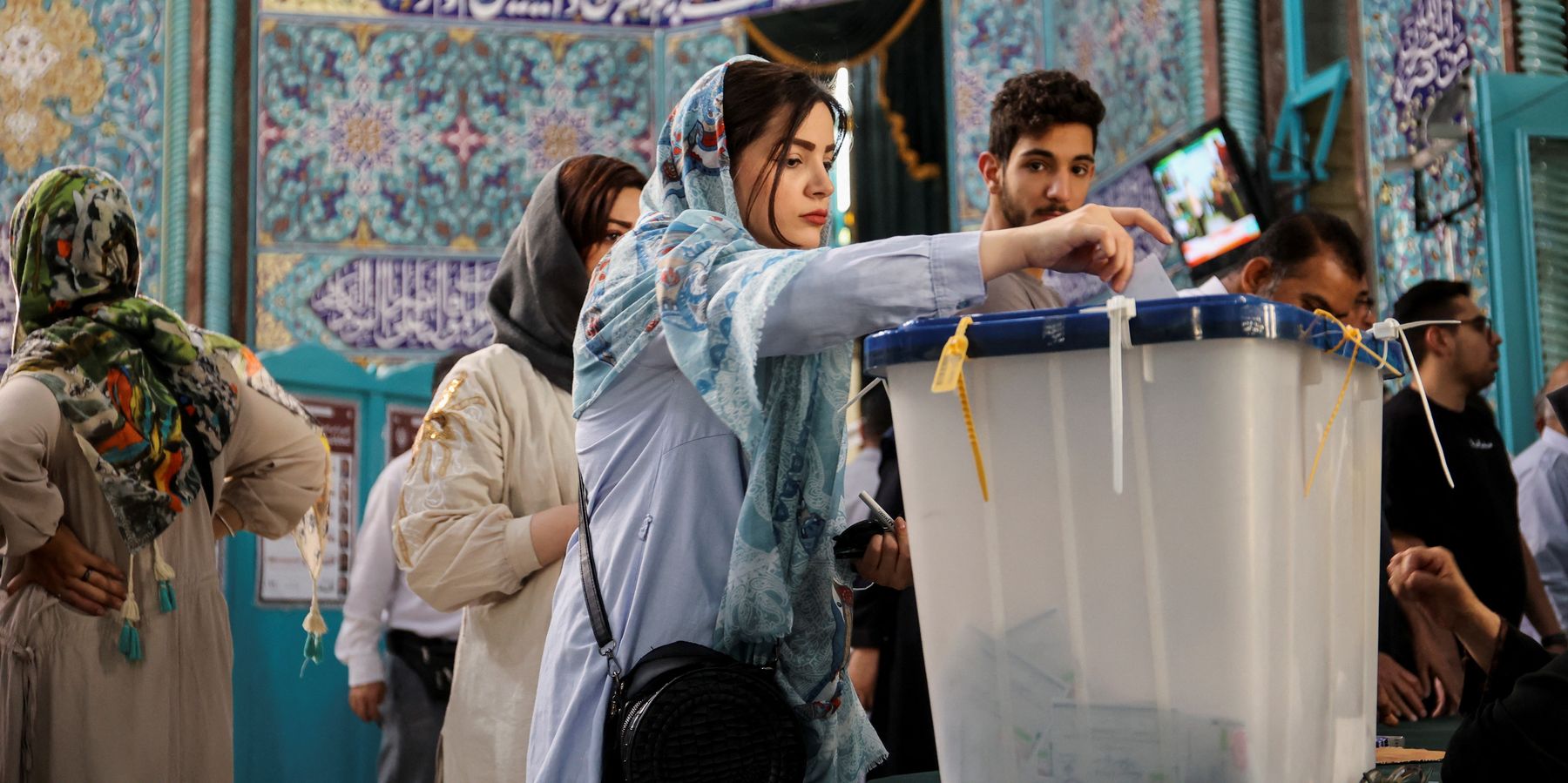Against all odds, Friday’s presidential election in Iran, necessitated by the death of President Ebrahim Raisi in a helicopter crash May 19, may actually matter.
In 2021, only 47% of eligible voters participated in the elections since no real options were provided. The Mahsa Amini protests the following year demonstrated that a significant portion of the population, particularly among Iran’s Gen Z cohort, had given up on the idea that change could come through the ballot box. They wanted revolution through protests in the street, not reform through elections.
But protests didn't deliver revolution, and the pendulum appears now to be shifting back toward trying the electoral route.
Sources tell me there's been a visible increase in enthusiasm for the elections in the last few days. This may stem from the perception that the regime may not have the ability to control this surprise election. If the outcome isn't given, casting your vote may make a difference.
For many voters, this is not about ideology or whether the Islamic Republic is legitimate or not. It's about improving their increasingly dire economic situation in the medium term. They are looking for the candidate who will most likely be able to reduce the price of meat.
Regardless of who wins, the election will not likely have a significant impact on Iran's regional policies. Iran will continue to lead the so-called Axis of Resistance and continue to support its network of militias across the Middle East. And it will continue to seek improved relations with its Arab neighbors, partly to help neutralize Western sanctions.
But the elections may impact Iran's policy toward the United States. Of the three leading candidates, Masoud Pezeshkian, who enjoys strong support from reformist factions that were effectively excluded by the regime’s Guardian Council from the 2021 presidential contest, has argued for the need to engage the U.S. in direct talks and will likely bring back the foreign policy team that negotiated the 2015 nuclear deal between Iran and the five permanent members of the U.N. Security Council plus Germany.
Mohammed Bagher Qalibaf, a former IRGC Air Force commander and mayor of Tehran, a moderate conservative, has signaled a similar openness to talks, while Saeed Jalili, a hardline conservative who ran unsuccessfully for the presidency in both 2013 and 2021, has long opposed the JCPOA, as the 2015 nuclear deal is known.
Most observers believe that none of the four candidates in this round of the election is likely to garner over 50% of the vote. If so, the two candidates with the most votes will face off in a run-off election July 5.
Much will depend on voter turnout Friday, according to most analysts who have argued that a high turnout, particularly among younger voters, would likely favor Pezeshkian, the reformist candidate who has most strongly spoken out in favor of reengaging with Western countries.
But expectations for an opening between the U.S. and Iran should be kept low, even if Pezeshkian wins. The problems between the U.S. and Iran are deeper today than they were in 2013, the trust gap is wider, reversing Iran's nuclear advances is going to be more difficult and politically more costly. On top of all that, Iran has more options in today's increasingly multipolar world.
- Mass disqualifications set the stage for Iran’s presidential election ›
- Could a reformist actually win the Iranian presidential election? ›
















